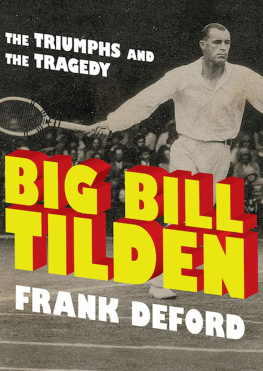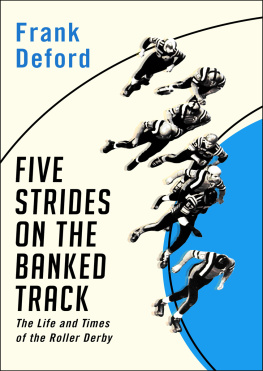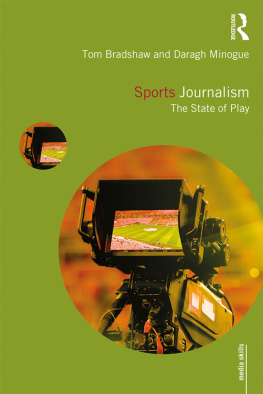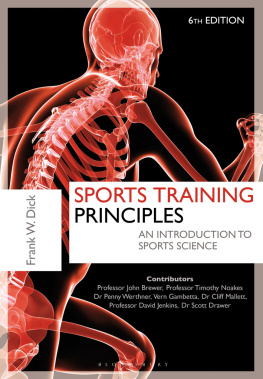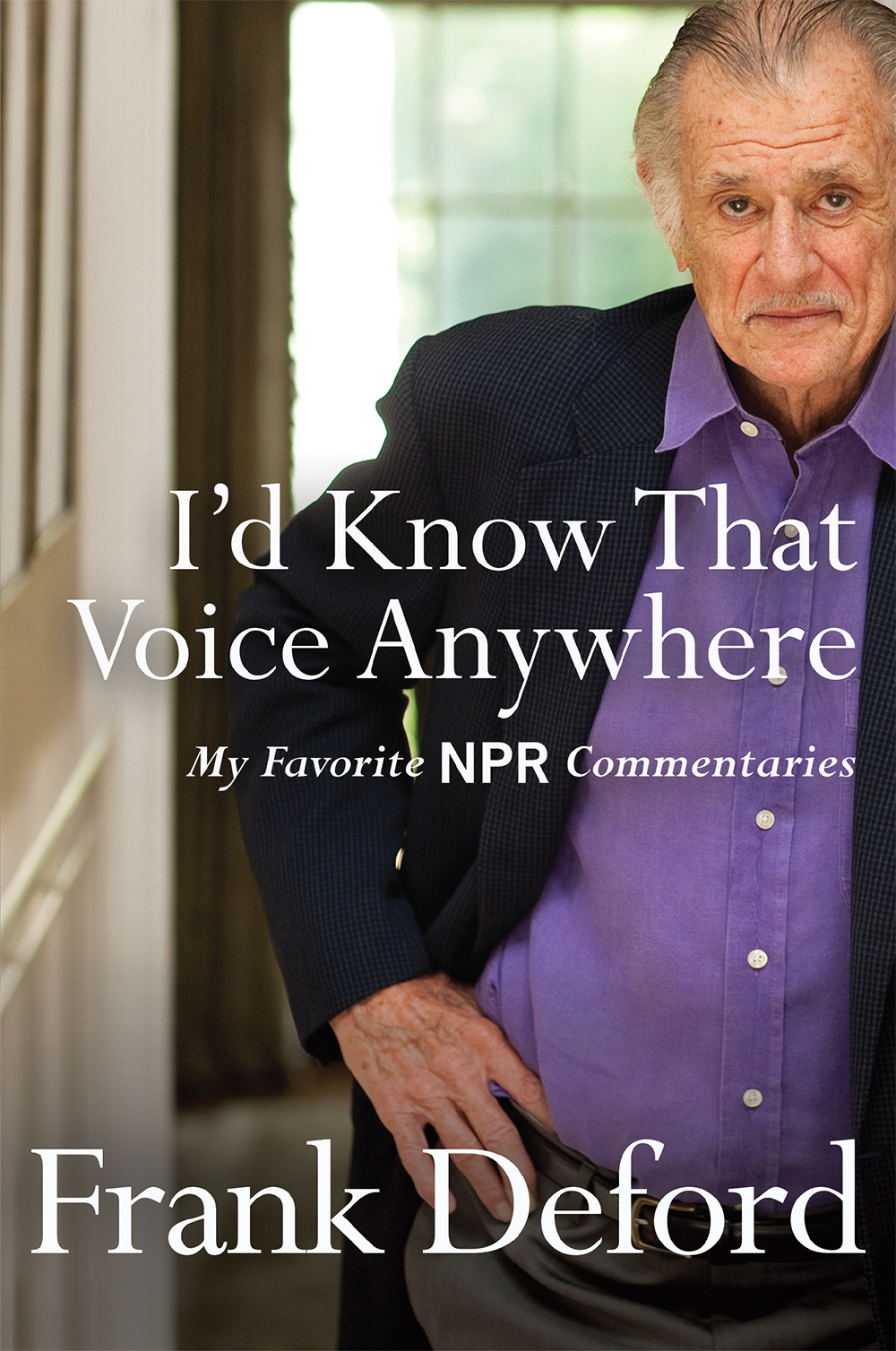Id Know That
Voice Anywhere
Also by Frank Deford
FICTION
Cut n Run
The Owner
Everybodys All-American
The Spy in the Deuce Court
Casey on the Loose
Love and Infamy
The Other Adonis
An American Summer
The Entitled
Bliss, Remembered
NONFICTION
Five Strides on the Banked Track
There She Is
Big Bill Tilden
Alex: The Life of a Child
The Worlds Tallest Midget
The Best of Frank Deford
The Old Ball Game
Over Time
Id Know That
Voice Anywhere
My Favorite NPR Commentaries
Frank Deford

Atlantic Monthly Press
New York
Copyright 2016 by Frank Deford
Jacket design by MJC Design
Cover photograph Bruce Plotkin; bruceplotkin.com
Words to Play By, Where Have We Gone? (originally published as A Man for His Times), Chicago (originally published as Our American City), Play a Fore (originally published as Golf v. Tennis), Too Much to Care (originally published as Worth), The Forgotten (Well, Briefly) (originally published as Just Like Switzerland), Gone Fishin, Gimme That Old-Time Momentum (originally published as Momentum Has Momentum), and Speaking of Sports (originally published as Sports Centered) first appeared in The Best of Frank Deford (Triumph Books, 2000).
All rights reserved. No part of this book may be reproduced in any form or by any electronic or mechanical means, including information storage and retrieval systems, without permission in writing from the publisher, except by a reviewer, who may quote brief passages in a review. Scanning, uploading, and electronic distribution of this book or the facilitation of such without the permission of the publisher is prohibited. Please purchase only authorized electronic editions, and do not participate in or encourage electronic piracy of copyrighted materials. Your support of the authors rights is appreciated. Any member of educational institutions wishing to photocopy part or all of the work for classroom use, or anthology, should send inquiries to Grove Atlantic, 154 West 14th Street, New York, NY 10011 or .
Published simultaneously in Canada
Printed in the United States of America
ISBN 978-0-8021-2524-8
eISBN 978-0-8021-9035-2
Atlantic Monthly Press
an imprint of Grove Atlantic
154 West 14th Street
New York, NY 10011
Distributed by Publishers Group West
groveatlantic.com
For Scarlet and Sean Crawford
Contents
Nine Innings, Four Periods,
and an Overtime
The
Foreword
Being a writer, I never paid much attention to my voice. Since, when it came to interviewing, I was a primitive pen-and-notebook reporter, I rarely even heard myself speak on a tape recorder. Inasmuch as I cant carry a tune, I certainly never sang. Much of my life was conducted before answering machines came along. I just figured I got by speaking to other people with a nice, everyday speaking voice.
Then, in the autumn of 1979, through impossibly serendipitous circumstances, National Public Radio approached me about doing a weekly sports commentary, and suddenly I had to direct that run-of-the-mill voice of mine into a microphone. But then, to my utter delight (shock and awe?), I soon found myself being complimented, advised that I possessed a distinct radio voice. Where did you get that? people asked me, as if you could pick it out at an appliance store.
I had grown up in Baltimore, where many of the natives speak in abrasive, nasal tones. Somehow I had avoided picking up that patois. My mother came from Richmond, and so it is possible that, via the miracle of genes, a bit of her southern lilt found its way to my vocal cords. Then, postadolescence, as I moved from Baltimore to the more cosmopolitan precincts of Princeton and Manhattan, my tongue may have picked up some gravitas to balance the inherited Dixie syrup. My wife taught me how not to butcher French words, to sound more savoir-faire. And, if I do say so myself, I think I own a naturally superior chuckle. (An accomplished chuckle is a rare radio gift, just right for leavening and far more valuable on the air than is a hearty laugh.) Ive finally decided that I must possess what may be best described as the domestic version of a mid-Atlantic accent.
Anyway, I was advised that something set my bloviation machinery apart... at least for the perceptive folk listening to NPR. Ive even had strangers who do not know what I look like, but who have merely heard me talking to friends in, say, some relatively subdued saloon, approach me and inquire if I wasnt Frank Deford. That voice. I would know it anywhere.
Even the high and mighty have said the same. When I introduced myself to Hillary Clinton in the receiving line at a black-tie White House event, the first ladys response was, Oh, Id know you anywhere, Frank. That voice wakes me up every Wednesday morning.
So, quite to my surprise, I possessed the physical goods for approved radio transmission, just as the writer in me came to love my three dramatic minutes a week when I could voice my own wise words in front of the NPR microphone. Please understand, too, that, in the vernacular, I mean that precisely, for voice is the operative verb of choice at NPR for verbalizing. Usually, in the world at large, the verb voice is used only with the predicate his objections, but at NPR, it is how we describe what we do, live or recorded. Thus, listeners hear me voice three minutes on Wednesday mornings that I have previously voiced on a fancy recording device, i.e., what used to be called tape.
In any event, as I became a regular on the national airwaves, I recalled what Howard Cosell (now there was a distinct voice) had told me once, that as awesome as the written word could be, and even though we know that one lousy picture is worth a thousand of those words, and on top of that television is the most powerful medium ever invented, never mind, Mr. Cosell informed me: a proper voice emanating from a radio may carry the most weight of all. That is because, he declared, a radio voice is simple and direct and comes to the listener without visual distractions.
The ultimate: Paul Harvey: Gooddd... day!
The penultimate: H. Cosell: This reporter has learned...
Given that this is a printed page, a whole book in the aggregate, it may seem odd that I would start off immodestly analyzing, even rhapsodizing about, my delivery, but I am intrigued at this proposition that what I have spoken/voiced for the ear is here seeking to catch the approval of the eye. Its unusual, maybe even risky, to attempt such a particular trans-communication. Most books that are an accumulation of shorter pieces are filled with the assembled likes of essays or short stories or columnsthat is, other works that were likewise originally printed. Sermons, I think, are the rare audio disquisition that sometimes make a successful leap from the utterance to the page. But then, of course, sermons have faith going for them.
Nowadays, theres probably more crossover headed in the other direction, written words being given a second exposure by a vocal professionalbooks on tape. Myself, once I left my mothers lap, Ive never heard a book read to me that I found as enjoyable as when I read it myself. However, I would say that in both cases where language is taken into an alternative realm the new medium does possess one advantage over the original rendering.
In the one instance, the actor reading a book for you on a CD can dramatize the written word, give it the pizzazz that a writer just cant gin up by himself no matter how talented he might be. (Thats why we have actors in the first place, isnt it?) And Im not just talking about action and mystery and scary stuff. To me, the Gettysburg Address always comes across much better when read aloud than it does merely being absorbed in print. I wonder how emotional Lincolnwho was apparently distinguished by a curiously high voicewas in reading it.


